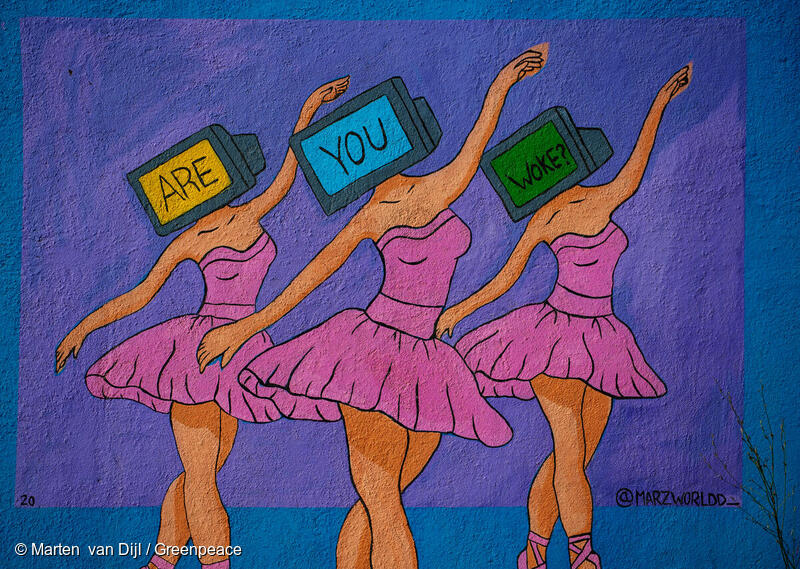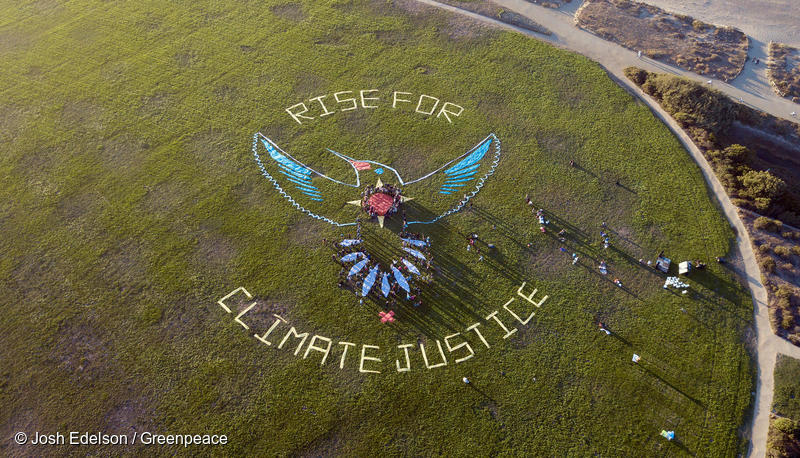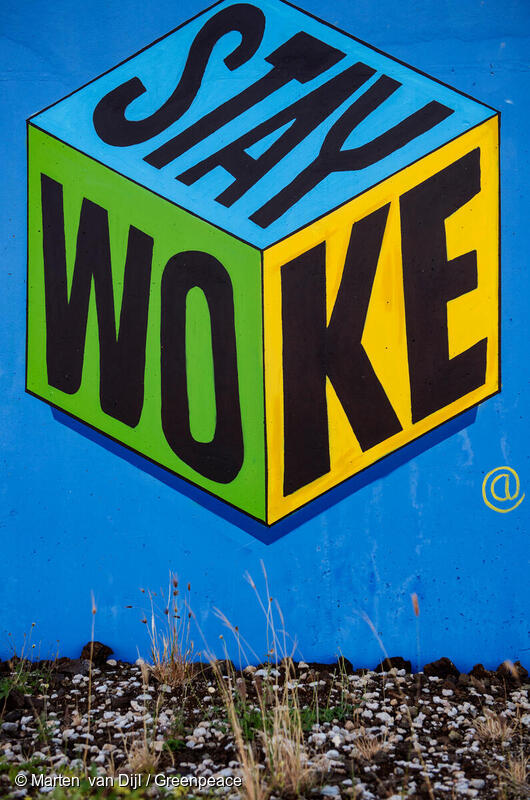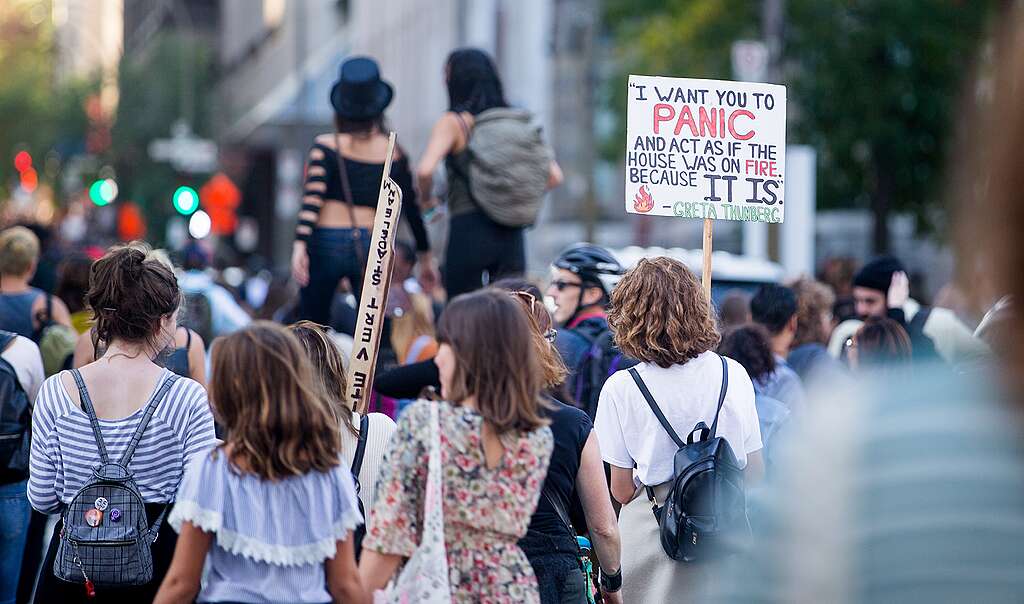In Canada, we are witnessing the deliberate weaponization of the term “woke” by political figures like Pierre Poilievre and other right-wing leaders, who use it as a blanket label to dismiss calls for justice, equity, and truth. What began as a term rooted in activism—particularly within Black and Indigenous communities—has been distorted into a derogatory buzzword, often used to discredit legitimate movements for social change.

At its core, “wokeness” is simply the awareness of injustice. It is an awakening to the systemic inequalities and oppressive structures that exist in our societies.
Wokeness calls attention to the injustices faced by marginalized communities—whether it’s racial inequality, gender oppression, economic exploitation, or colonial violence. It urges us to see the world for what it is and to recognize the ways in which historical and contemporary systems of power continue to harm those who are already oppressed. It also urges us to act—whether it’s standing in solidarity with Indigenous land defenders, fighting for climate justice, demanding accountability for police violence against Black and Brown communities, or advocating for the rights and dignity of trans people. Wokeness is the commitment to dismantling real, tangible harms caused by systemic oppression.
Yet, in political discourse, “woke” has been twisted into something negative, often used to paint social justice movements as radical or divisive. Often referred to as “wokeism” by political figures like Pierre Poilievre, the implication is that those who advocate for a more just and equitable society are somehow disconnected from the realities that truly matter to Canadians. This narrative tries to frame rejecting progress as aligned with what people consider “common sense.” But the truth is, fighting for justice, equality, and dignity is the real common sense—it’s about addressing systemic issues that affect everyone, not just maintaining a system that benefits a few.
Rejecting Wokeness as a Political Agenda
What is particularly troubling is that the rejection of “wokeness” is not just a dismissal of certain progressive causes—it’s a rejection of a broader moral and ethical framework that acknowledges inequality and seeks to address it. For example, when we see political leaders rejecting calls for action on Indigenous land rights, or when they oppose measures to address racial discrimination, they are not simply dismissing one issue—they are rejecting the very principles of justice and fairness that guide our efforts to create a more equitable society.
When an entire political agenda is built around rejecting “wokeness,” it signals a desire to maintain the status quo, where systems of oppression like colonialism, racism, and patriarchy remain largely unchallenged (these are the same systems that underlie and enable environmental destruction, by the way!). By framing “wokeness” as a threat, politicians like Poilievre are essentially arguing that the quest for a just and equitable society is somehow dangerous, and that acknowledging the existence of privilege and systemic harm is a threat to social cohesion.
But is it dangerous to demand a world where we all share equal rights and privileges, regardless of our race, gender, or identity? Or isn’t that precisely the world we want?

Reclaiming Wokeness
When a political agenda is built on rejecting “wokeness,” we risk fostering a society that is willfully ignorant of its injustices. We create a culture where critical conversations about race, colonialism, and privilege are silenced, and where the systems that perpetuate harm are left unexamined. This rejection of “wokeness” isn’t just about rejecting one term—it’s an attempt to keep us comfortable in our ignorance, allowing harmful narratives and power structures to persist unchecked. It positions movements for social justice as something undesirable, ultimately painting the pursuit of equity as a divisive, even “un-Canadian” endeavor.
This approach does not serve the greater good. By vilifying the awareness of injustice, we are complicit in the perpetuation of harm. We cannot afford to look the other way when issues of racial violence, gender discrimination, and environmental devastation continue to affect marginalized communities. When we reject wokeness, we reject the very notion of justice—one that holds us accountable for our actions and urges us to do better.

Let’s take a moment to really think about what “wokeness” means. At its core, it’s a call to action, not about moral superiority or political correctness. It’s about acknowledging the lived experiences of those who have been pushed to the margins and coming together to build a more just and inclusive society. Instead of letting politicians twist it into a weapon, let’s reclaim “wokeness” as a badge of honor. It’s a symbol of our commitment to challenge injustice and fight for real, systemic change.
So, ask yourself: What kind of society do we want to live in? Do we want one where we turn a blind eye to systemic injustice, or one where we tackle these issues head-on—with compassion, accountability, and a true drive for equity? Rejecting “wokeness” means rejecting the very values that drive social justice. It’s time for all of us to rise above the political rhetoric and push for a Canada where justice, truth, and equity are more than just words—they’re the lived realities for everyone.
Comment your reflections below!

